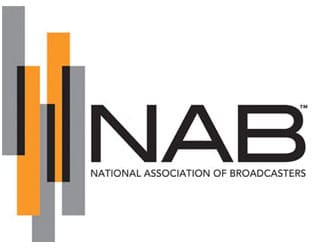Democratic FCC Commissioner Michael Copps has well-known views on the state of the broadcasting industry, and he doesn’t mind sharing them. That’s one reason that the topics he chose to discuss in an address given to the Federal Communications Bar Association aren’t all that surprising. More diversity. More competition. Better journalism. Less consolidation. He’s said it before, and he’ll say it again.
Here are some excerpts of Copps’ remarks:
Copps on competition: The conference report for the 1996 Act describes it as “provid[ing] for a pro-competitive, de-regulatory national policy framework designed to accelerate rapid private sector deployment of advanced services and information technologies and services to all Americans by opening all telecommunications markets to competition.” Sadly, some in industry—and two former Commissions—tended to focus more on the term “de-regulatory”—which, as I hope most of us remember, was really aimed at removing regulatory barriers to entry—than on “pro-competitive.”
Copps mentioned a spectrum inventory, while not specifically mentioning voluntary television spectrum auctions: “We must work hand-in-hand—the Administration, the Congress, the Commission, industry and all stakeholders—to find ways to make additional spectrum available and to make better use of our supply by expanding flexibility and improving efficiency. To that end, I have long supported efforts for a spectrum inventory—the FCC’s creation of the Spectrum Dashboard is a first step down that road—to examine what spectrum is actually being used, how it is being used, how intensively it is being used, and whether particular slices of spectrum can be put to better use to serve consumers.
Copps on how he is viewed at Fox News: At the beginning of December, I delivered a speech at Columbia University’s School of Journalism that got some attention. Fox News Channel’s Bernie Goldberg worried that I wanted “to shut down conservative talk radio” and Bill O’Reilly wondered if I was “going to begin calling shots here on The Factor.” Let me be clear: neither is true. And neither has anything to do with what I was actually talking about. Imagine that from those two! But it’s not their opinions I worry about. I have lots of opinions, too. And I like to express them. But what you and I are getting these days is too much opinion based on opinion and too little news based on fact.
Copps on consolidation and diversity: We have witnessed a 39% drop in the number of owners of radio stations in the last 15 years. Similar consolidation shrunk television. In 2010, there were 150 fewer owners of commercial TV stations—a 33% decrease. And, while 34% of the U.S. population consists of minorities, only about 3% of full-power commercial TV stations and 7.7% of radio stations are minority-owned. That’s bad for citizens, bad for the country, and I believe it’s bad for broadcasting, too.
Copps on licensing: [I]n my December speech, I called for the Commission to restore credibility to our broadcasting license renewal system by adopting a “Public Value Test,” rather than the current rubber stamp of the status quo. Some say it’s a digital age now and there is no need to focus on broadcast and traditional media. Data points to the contrary. A recent Pew study found that 78% of respondents identified television as the source of their news, the highest percentage for any platform.
Copps on public broadcasting: I also hope that, as part of the nation’s discussion about the future of the media, we can all engage in a calm, serious and non-knee-jerk discussion about increasing support for public broadcasting—the jewel of American media. The sad reality is that, in this country, we spend, per capita, per annum, $1.35 supporting public media. In other democracies, citizens happily pay up to hundreds of dollars more than that. Public media enjoys high levels of public trust in our country, investing in its future is investing in our future, and talk of zeroing out this funding leaves me totally incredulous.
Copps on political advertising: On a related note, I have been calling—both internally and now publicly—for the FCC to launch a Notice of Inquiry to examine disclosure in political advertising. In the last election cycle close to $3 billion was funneled into political advertising. We the people have a right to know who is bank-rolling these ads beyond some wholly unidentifiable group set up to mask the special interest it really represents. If “Citizens for Spacious Skies and Amber Waves of Grain” is really under-written by a chemical company that doesn’t want to clean up a toxic dump, I think viewers and voters would probably want to know that. Both sides of the political spectrum are guilty of this undemocratic sin of omission. Anonymous ads sidetrack our civic discourse. Better to put a face on them and let the people see.
RBR-TVBR observation: One of Copps’ big issues is finding a way to end rubber-stamp license renewals in favor of a meaningful review of a station’s service to its local community. While we think that providing meaningful local service is key to broadcast survival, there are many ways to provide that service, and no one good way to define it.
Just to provide one example, if a broadcaster does little more than bring a national home shopping network into town, it’s not exactly setting a stellar example of providing local service. But if local people tune in and make use of the service, then by definition the station IS providing local service.
Even if he is successful in adding more teeth and a shorted term into the process, the amount of time and staff that would be necessary to do a job that we believe cannot be done anyway would be more than the FCC has or is likely to get.




